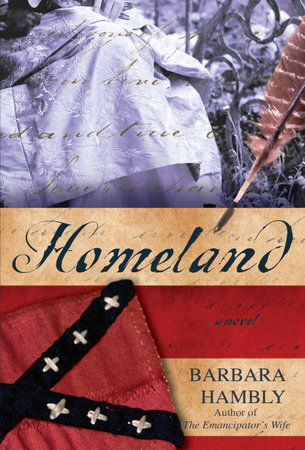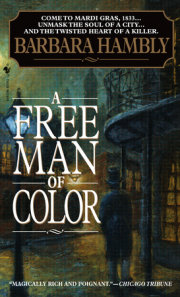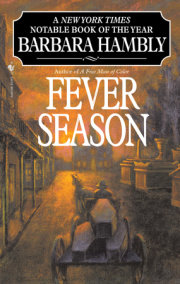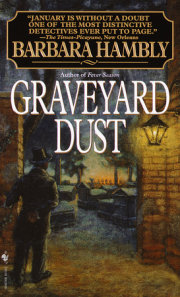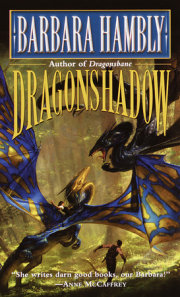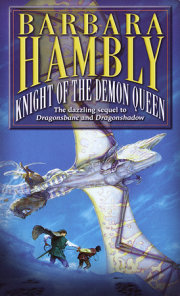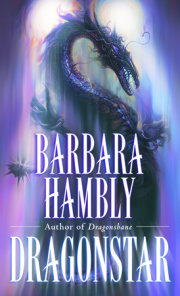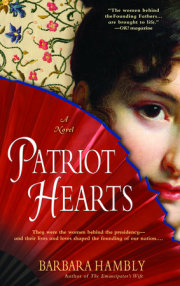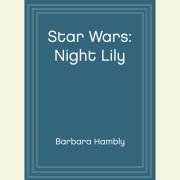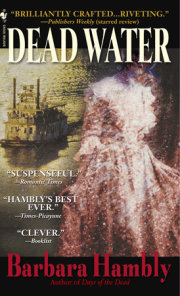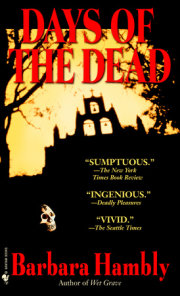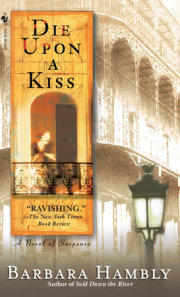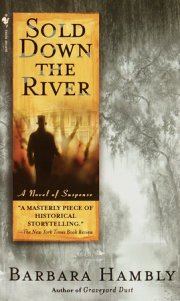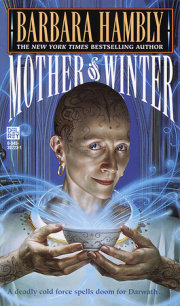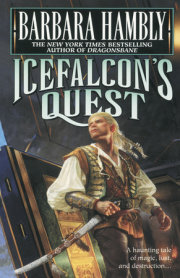Susanna Ashford, Bayberry Run Plantation
Greene County, Tennessee
To
Mrs. Cora Poole, Blossom Street
Boston, Massachusetts
Thursday, April 25, 1861
Dear Mrs. Poole,
Please, I beg you, tell no one what you saw.
You said it was nothing, and I pray that's the truth. I wish there had been time to speak to you before you got on the train. I will always be so grateful to you for helping me as you did, and did not dare imperil your situation by even a day's delay. But, you being Emory's bride, I know you've heard the stories.
[I'm afraid—crossed out.]
Please forget.
I enclose this in a package of the books Emory's father says he is sending you. I hope that it reaches you in safety and that you enjoy the books. I am killed with envy that you're getting his copy of The Hunchback of Notre Dame!
You are the only person here—the only person I've ever met, really—who has truly and disinterestedly acted as my friend. I don't want what happened to destroy that. Please tell me it's really all right.
Your friend,
Susanna Ashford
P.S. Enclosed is a sketch of us going to Nashville.
Mrs. Cora Poole, Blossom Street
Boston, Massachusetts
To
Miss Susanna Ashford, Bayberry Run Plantation
Greene County, Tennessee
Monday, May 6, 1861
Dear Susanna,
Did we not agree, when I escorted you down to Nashville in March that we were to be Cora and Susanna? So far as I am concerned, that has not changed. Indeed, after eight whole weeks of matrimony I still find the thought of being Mrs. Anything unsettling. Our Lord said, "Let your Yea be Yea, and your Nay be Nay," and when I told you, "It's nothing," I meant it. I may be a "mealymouthed Abolitionist bluestocking," as your Aunt Sally so tactfully put it at that frightful -tea—party, but having grown up in an atmosphere poisoned by gossip, I have no wish to either spread it, or credit it. Be reassured, I will keep the thing I saw to myself. Yet I cannot pretend that I am not profoundly disturbed by it, and more than a little concerned for your safety.
Your letter arrived Saturday. The books that accompanied it were consigned to the attic, for I do not read novels.
When I wrote my letters of thanks to my kind hostess for the -tea—party, I felt I should write one to you, as well. Mrs. Johnson and your sister-in-law offered warm Southern hospitality, but in you I sensed actual friendship. Thank you for it, from the bottom of my heart. To excuse my delay in responding I plead the exigencies of setting up housekeeping for the first time: sewing curtains, learning which farmers in the market can be trusted not to water their milk, setting up -account—books with grocer, butcher, and the man who delivers the coal, and finding a -servant—girl who is honest. Back on Deer Isle, everyone knows the girls who "help" and can complain of them to their mothers if they misbehave. Here, most prospective "helpers" are immigrant Irish or German girls, and their mothers speak little or no English.
I trust our efforts in Nashville have borne fruit, and your admission to the Academy is secured? I know you were apprehensive. Yet I cannot see how your father would object to your hope of attending the Academy, much less of going on to advanced training in Art. Were you your father's son, rather than a daughter, there would be no question of keeping you from the technical training that shapes ability into excellence. One look at your sketchbook convinced me how extraordinary your talent is.
Forgive me if I write too warmly. My own father took great care, and suffered no small amount of criticism, that I should have an education equal to my brother's, and it is a matter very close to my heart. Please let me know, as soon as you hear.
And thank you, for your concern not to delay our departure. Happily, our train was not stopped by the militia bands one hears of. I trust that all remains quiet in your section?
Please extend my best wishes to Mrs. Johnson when next you see her, and thank her again for her hospitality.
Ever your friend,
Cora Poole
[N.B. April 12-14, 1861, Fort Sumter was shelled by Confederates and taken.]
Susanna Ashford, Bayberry Run Plantation
Greene County, Tennessee
To
Mrs. Cora Poole, Blossom Street
Boston, Massachussets
Monday, May 20, 1861
Dear Cora,
Thank you, thank you, thank you! I still don't know what to do—or even what to think—about what happened at the depot.
[I can't let—crossed out]
I bless you for your silence.
There have been housekeeping exigencies here, too, largely having to do with getting the tobacco seedlings transplanted. We have three hundred acres in tobacco, and about half again as much in corn, and my oldest brother, who oversees the day-to-day work of our plantation, leaves tomorrow to join the Army.
And thank you, more than I can say, for your words about going to the Academy. It's so true: were I a boy there would be no question whether I should go to the art academy in Philadelphia, even if it is in Enemy Territory now. There certainly wasn't any about my brother Payne going to the Virginia Military Academy.
I've kept house here since my Evil Stepmother died when I was nine—Pa likes the way I manage the servants, and do the accounts. When Julia was getting ready for her wedding, and didn't need me for a companion anymore, she was happy to tell Pa how nice it would be for me to go to the Academy. But now that Tom has gone into the Army, and Julia is home again, she doesn't want me to leave, either. When Pa shakes his head and sighs, "Now, Babygirl, there isn't a thing they teach at that Academy that you can't learn right here at home," I sneak up to my room and read and -re—read your letter, to remind myself that he says so only because I'm a girl. That I have as much of a right to be an artist, as a boy would.
Friday, May 24
I can't imagine not reading novels. When I was little, I would tag after Payne when he'd go up to Crow Holler to go hunting with Emory, and I'd sit on the -dog—trot and read Mr. Poole's books. Some of them I couldn't understand (a lot were in Latin and French and Greek), but sometimes Mr. Poole would come out of the woods and help me with them. Then at night I'd tell the stories back to Julia and Payne, or make up other stories about the characters. Even though I know you don't read them, I'm glad to know Mr. Poole's books are safe in your attic. The Secesh militia has been burning the houses of Unionists.
Didn't you even read Uncle Tom's Cabin?
Your friend,
Susanna
P.S. I enclose a sketch of your train being attacked by the Secesh militia. That's Julia down in the lower corner, fainting into President Lincoln's arms. (Does he still have a beard?)
Mrs. Cora Poole, Blossom Street
Boston, Massachusetts
To
Miss Susanna Ashford, Bayberry Run Plantation
Greene County, Tennessee
Monday, June 3, 1861
Dear Susanna,
Had I known—as I now do, thanks to your sketch—that Confederate militia bands include elephant corps, chariots, and archers firing from balloons, I would certainly have been even more apprehensive than I was at the thought of them attacking our -home—bound train. I will treasure your sketch, and take it to show the ladies of my Tuesday night Soldiers' Aid Society. What on earth is a "-dog—trot"?
". . . there isn't a thing they teach at that Academy"—fiddlesticks! I heard that from every one of our neighbors when I was preparing to go to the Female Seminary on the mainland: "What's wrong with the schools right here on Deer Isle?" Your father doubtless thinks there are plenty of -drawing—teachers in Greene County, as good as anything you'd find in Philadelphia, or Paris for that matter!
Of course I except Uncle Tom's Cabin from the general category of novels, written as it was with a higher purpose than mere frivolity. Even my father excepted it, once I had lent my copy to him. This was after my -school—friend Elinor thrust it upon me and declared she would never speak to me again, until I read it. And please forgive me my assumption that you would follow your family's lead on the question of Secession—an assumption unworthy of Mrs. Wollstonecraft, and Lucretia Mott, and other champions of the right of women to think and speak after the promptings of their own hearts. Or do I mistake your words? I am extremely curious to know what you thought of the book? I wept and wept over it.
Tuesday, June 25
An interruption. Only days after the receipt of your letter, my mother wrote me from Deer Isle that my brother Oliver quite astonishingly announced his intention to wed, and Emory and I took the train back to Maine to attend the wedding. (Mother is fit to be tied.) It was good to see again the friends with whom I grew up, though my darling bossy Elinor could not attend, being great with her second child. Most of the men were out with the -cod—fleet, and all my aunts and cousins and -second—cousins deep engaged in the cultivation of their gardens.
The talk was of nothing but the War, and of the parade when the first of the Maine regiments marched south; of how we will "make the Southerners pay for their audacity." Flags float from every public edifice and most private ones as well. Despite the joy of having milk and butter from our own cows, and good country vegetables—despite the beauty of the wildflowers in our woods and the pleasure of working in Mother's garden again—I was conscious as never before of how primitive is the life on our island, and how narrow the focus of its dwellers, though they be people that I love. Nowhere did I hear even the suggestion that all Southerners might not be degenerate -slave—holders.
I am profoundly glad to return to Boston. I sorely missed the variety of its newspapers, and the chance to read more than one view of a subject: here in Boston I read not only our own Transcript and Harper's but several New York papers as well. Sorely, too, I missed the opportunity to hear lectures other than the Sunday sermon at church, or music beyond the level of the choir singing a hymn. How far I have come from that world!
We travelled up with my older brother Brock, his wife, and their children. Army recruiters were active on the island; fifteen of our men have enlisted, including four of my cousins, our hired man, Elinor's husband Nathan, and my friend Deborah's fiance Charles. Most of those who signed up for the -three—month enlistment were married men, many with children.
I send this in care of Eliza Johnson, who writes me that though postal service between the States of the Confederacy, and those of the Union, is now severed, men cross over the mountains in secret. I understand her husband made good his escape—surely the Confederates would not actually have hanged him? I pray this reaches you.
Emory bids me send his love to your beautiful sister.
Affectionately,
Cora
Copyright © 2009 by Barbara Hambly. All rights reserved. No part of this excerpt may be reproduced or reprinted without permission in writing from the publisher.

